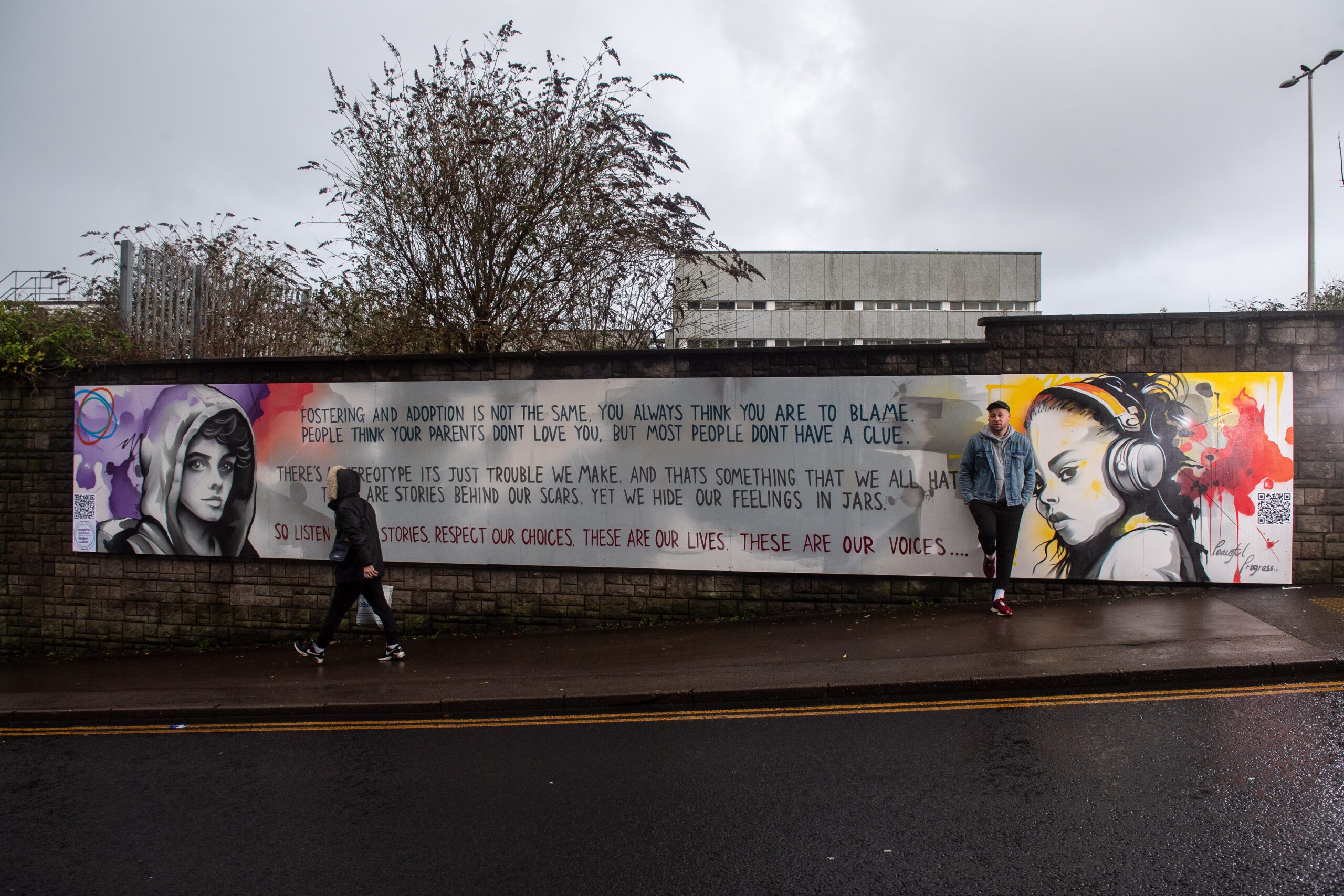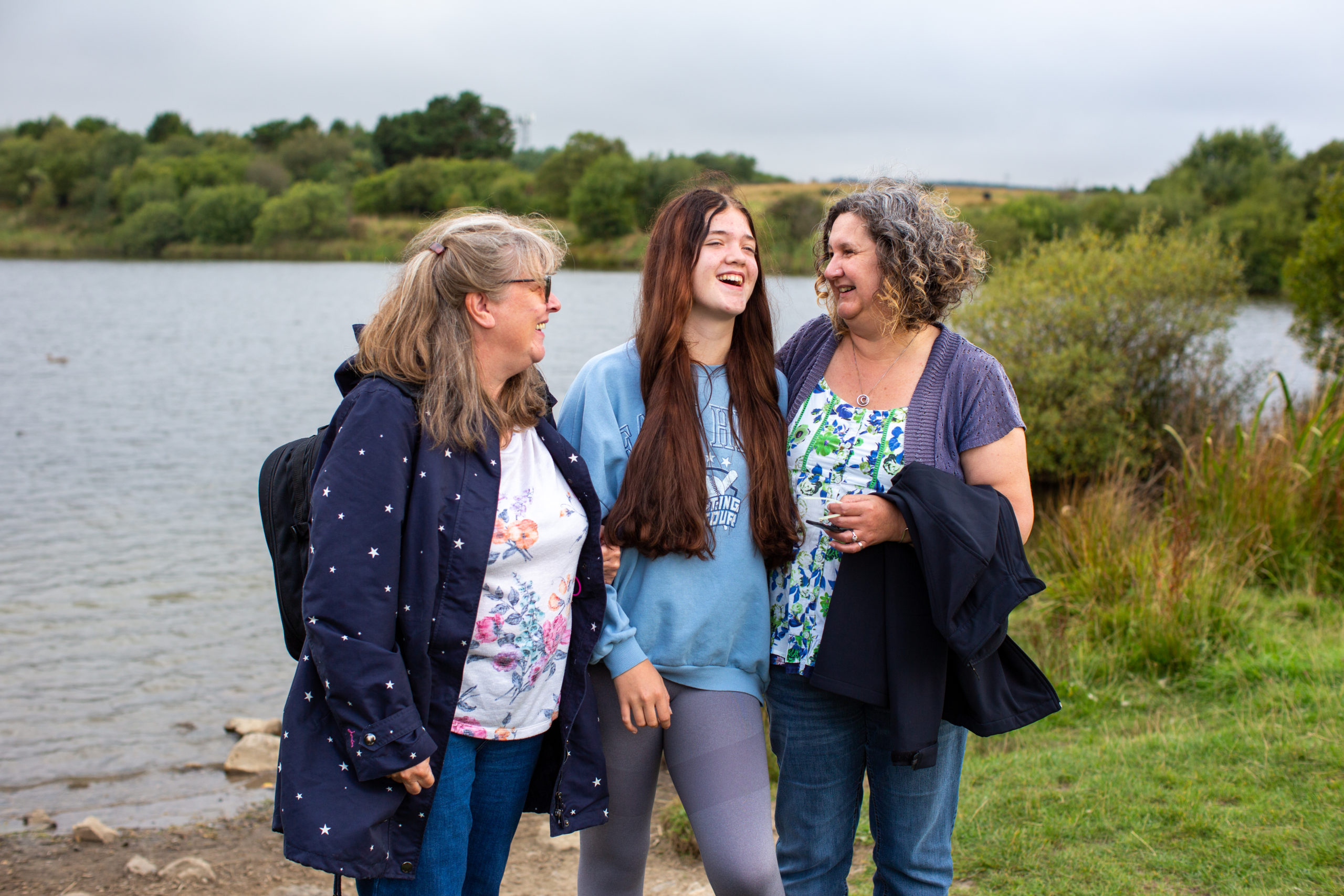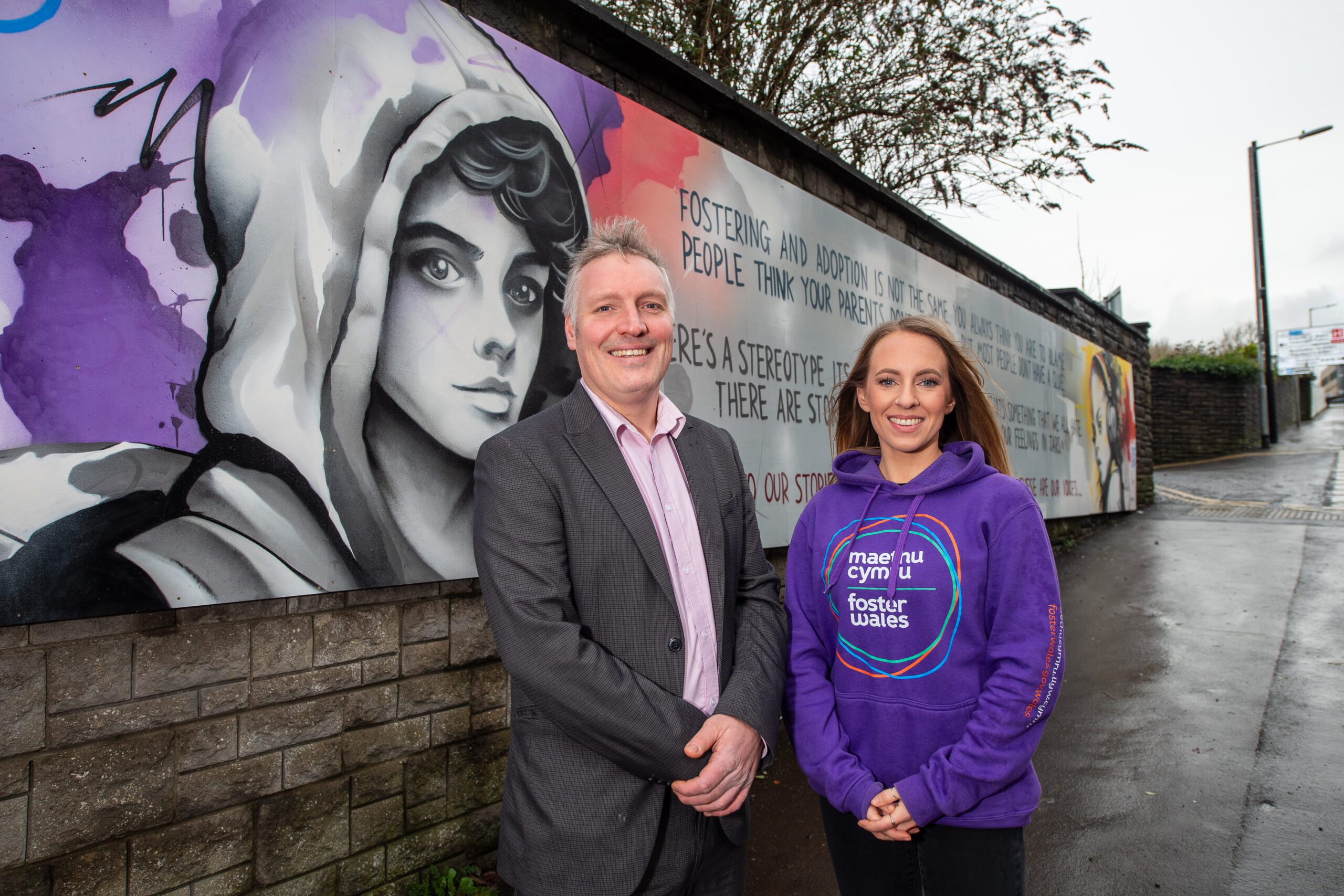perceptions of
teens in care
“There’s a stereotype it’s just trouble we make,
That is something we all hate.”
Former Children’s Laureate Wales, Connor Allen, partners with Foster Wales to challenge perceptions of teens in care through poetry.
There are nearly 5,000 children in foster care across Wales. 53% of those are aged 11+.
Many of them have faced extreme hardship and adversity, and yet when asked, it’s the negative perceptions of wider society that hurt them most.

Molly* is 14 and is in foster care in Bridgend:
“As young people in care, we get judged before people even get to know us, people think we’re just troublemakers who do drugs and get pregnant underage. It’s just not true.
“We’re just normal people like everyone else, apart from our story is a little bit different. Everyone is human, and we make mistakes, some of ours are down to the traumatic experiences we’ve been through.”
To challenge these misconceptions, a group of care-experienced young people (11-16) from Bridgend County Borough have been working with the former Children’s Laureate Wales,’ Connor Allen, to create a piece of poetry sharing their life experiences, in the hopes of educating the public around the realities of fostering.

The young people also hope their poem, which is due to be displayed publicly on Brackla Street in Bridgend, will encourage people to think about fostering a child aged 11+.

Mae gennym ni lais
Maethu a mabwysiadu, mae’n dipyn o frwydr,
Pobl yn gweld bai, ni o dan y chwyddwydr,
A llawer yn tybio nad yw ein rhieni’n ein caru,
Does dim syniad ‘da nhw beth yw ein stori.
Mae’r label arnom ein bod ni’n creu trwbwl,
Ond nid yw hynny’n deg o gwbwl,
Tu ôl i bob craith, mae yna hanes i’w hadrodd,
Ac mae rhannu teimladau’n eithriadol o anodd.
Clywch ein straeon, clywch ein hadlais,
Mae ein bywydau o bwys, mae gennym ni lais.

Fostering and adoption is not the same
You always think you are to blame
People think your parents don’t love you
But most people don’t have a clue
There’s a stereotype its just trouble we make
And that’s something that we all hate
There are stories behind our scars
Yet we hide our feelings in jars
So listen to our stories, Respect our choices
These are our lives, These are our voices

Molly, who co-wrote the poem, shared her experience of being a looked-after person:
“Having a foster carer who sees through false perceptions and recognises my past but still continues support and encourage me to make positive steps forward is helpful for my wellbeing.”

Ben, 13*, said his foster carer has been vital to his wellbeing:
“My foster carer helps me feel safe, they encourage me to try new sports or hobbies but also ask me to do things around the house, such as putting the dishes away, which isn’t always fun but makes me feel like I have a place in their home.”

For Connor, who had a challenging adolescence, the impact of negative perceptions as a teenager rings true and he hopes the project will encourage the young people to use the arts as a launchpad to tell their unique stories.
“Everyone has a story, and everyone has a voice and I’m blessed to be working on such an important project with Foster Wales that allows crucial voices to be heard and seen. I hope they’re proud of their poem which reflects their true experiences.”
Alastair Cope, Head of Foster Wales, the national network of 22 Welsh Local Authority fostering services, says there are many benefits to fostering a young person aged 11+.

“When people think about fostering, they often have a preference for younger children, but in some ways it’s easier caring for teenagers, and that’s where our biggest need is.
In many ways, teenagers in care are easier than fostering younger children. They have more understanding of what’s going on in their lives, and able to do things on their own.
“They need involvement in decision making and a place where their voices can be heard, support, a mentor, someone to stand by them, advocate for them and champion them.”
“The young people are on a trajectory to adulthood, so foster carers enjoy being involved in the rewarding stuff such as getting them through their exams or supporting them into university, a job, and maybe even a family of their own one day.
“All local authorities, as Foster Wales, want to create a positive lasting change where teenagers in care are seen positively, have a voice, and are championed and supported by foster families to achieve their true potential.”

Emma Phipps-Magill, Operations Director of Voices From Care Cymru, adds:
“People assume that for a young person to be in care, they must have done something bad or there’s something wrong with them. When you think about where that stigma comes from, a lot of things on TV and in the news about teenagers in care is all doom and gloom not celebrating their successes.
“Young people want to strip away these labels that have been given to them and just been seen as a teenager, and with the right support, thrive just like their non-care experienced peers. That’s why this project with Foster Wales is so important, because it gives them a voice and it’s helping to challenge these negative perceptions.”
*Names of the young people have been changed to protect their identities.
For more information on fostering, contact your local authority fostering team
